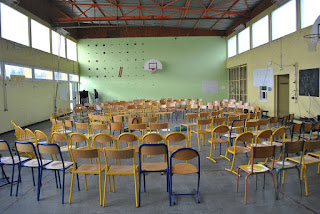Progress in recovery requires your participation. Do you share when you attend your support groups like AA and NA meetings? Do you get to meetings early and leave late so that you can volunteer or meet newcomers? Do you have a sponsor and work the Steps?
Hopefully, you answered “yes” to all the questions above. If you answered “no” to one or more of them, then this post should be informative. You have probably heard people say in meetings that their disease [addiction] is doing push-ups in the parking lot. It’s waiting for one to neglect their program and let down their guard; the disease wants to be strong if that time comes around.
While the above utterance is merely a metaphor, there is a kernel of truth to it that you should acknowledge. Long-term recovery is only possible through continued mental, physical, and spiritual maintenance. Having a stable program of recovery hinges on your level of participation. You will only get out of the program as much as you put in; half-measures never suffice when contending with mental illness.
If you give recovery your all, then you will achieve milestones beyond what you ever thought possible. If that sounds appealing, then why not give your program your best effort?
Surely, you can remember where you were and how you felt when you got to treatment and the rooms of recovery. You probably never want to be in the depths of despair again, right? So, please stay actively involved in your recovery to avoid relapse and not to allow addiction to reassert control over your life.
Letting Down Your Guard in Recovery
In most cases, relapse is the result of becoming less vigilant about your program. Many people robustly follow the formula for success in the first months and year of recovery. Such individuals get a sponsor and work the steps; they attend meetings every day and offer to be of service. Then, seemingly out of nowhere, they stop putting recovery first.
There are many reasons why one might become complacent about their active involvement with their recovery support groups. Some convince themselves that they have what it takes to maintain their sobriety with less effort. Others think that the Twelfth Step is a finish line; the race is over, so there is no need to keep doing the work.
Whatever the reason is for one deciding they can reduce their program participation is not the salient point. What matters is that those who give their recovery less than before are essentially letting down their guard. When this happens, it opens the door for the disease who was outside doing push-ups.
Most people who experience a relapse and return to active addiction, while managing to make it back to the rooms, would agree that this time was worse than before. Addiction is a progressive disease, and when a person relapses, they tend to experience a more intense version of their condition than the first time they sought help.
The result of returning to active addiction is often losing the trust of friends and loved ones all over again. Some people forget about tolerance and overdose, while others might find themselves behind bars. Nothing positive ever comes from letting addiction back in your life.
At Hope By The Sea, we strongly encourage you to re-engage with the recovery community if you have been neglecting your program. Lasting recovery and all the good that comes to you along the way is only possible through continued action.
Southern California Addiction Rehab
If you relapsed recently and returned to active use, then you can benefit from seeking professional assistance. Getting back into recovery can be a significant challenge due to the shame and guilt that accompanies a relapse. However, we ask you to keep in mind that a relapse does not need to be the end of recovery for you. Many people with years of sustained sobriety have a relapse in their stories.
Please contact Hope By The Sea if you are ready to get back on the path of recovery. We can help determine where and why you went astray, prepare you for what comes next, and help you avoid a future relapse. We are standing by to answer any questions you have about our evidence-based addiction treatment programs.


